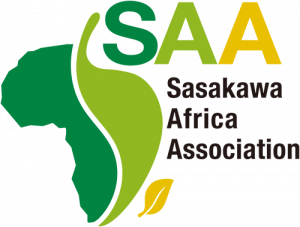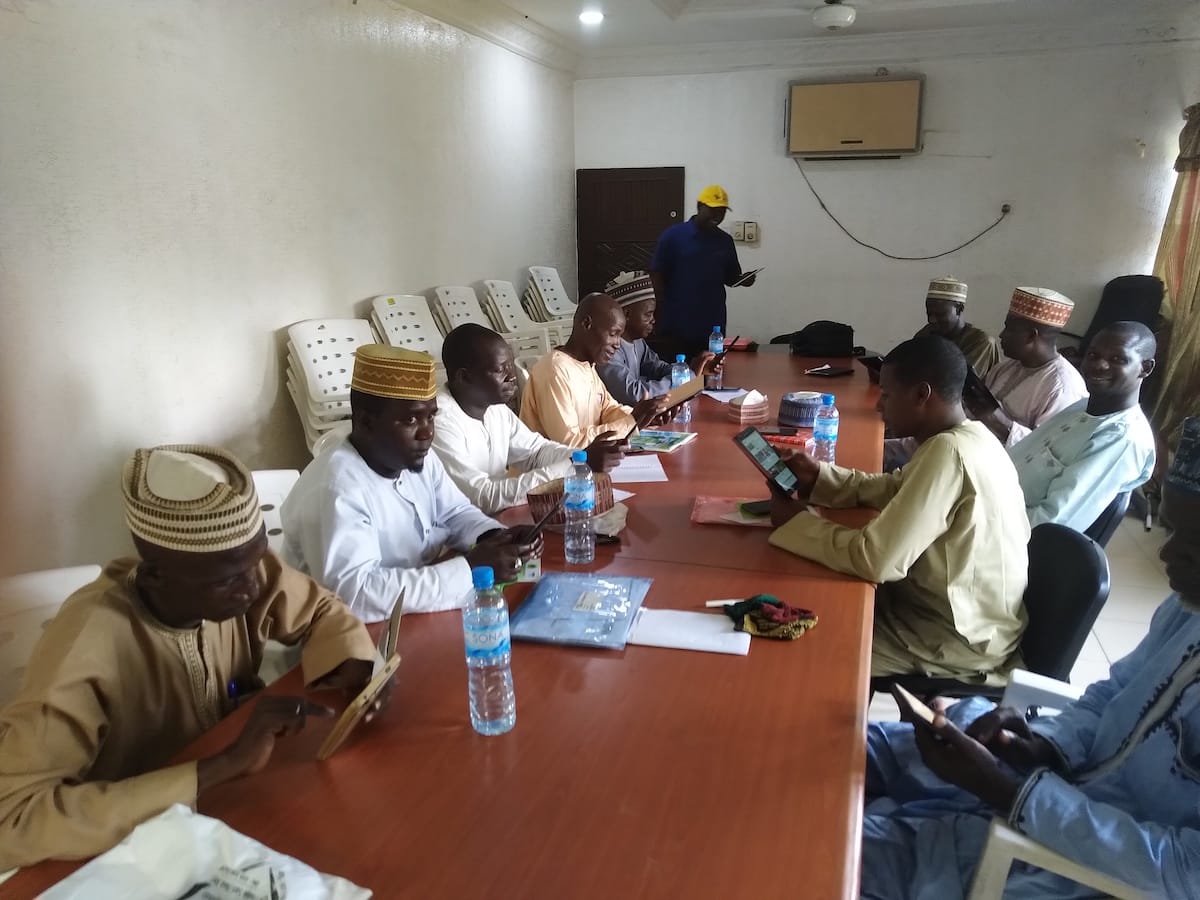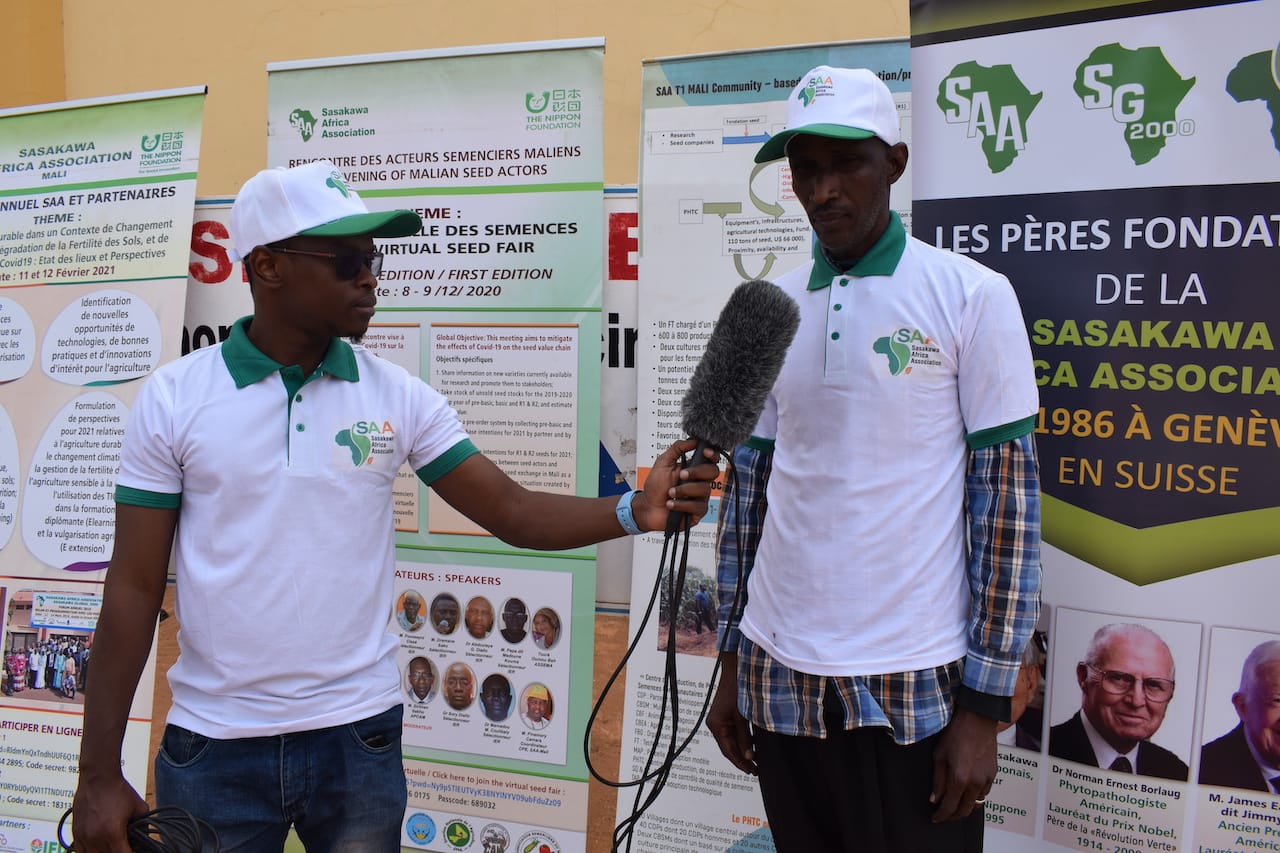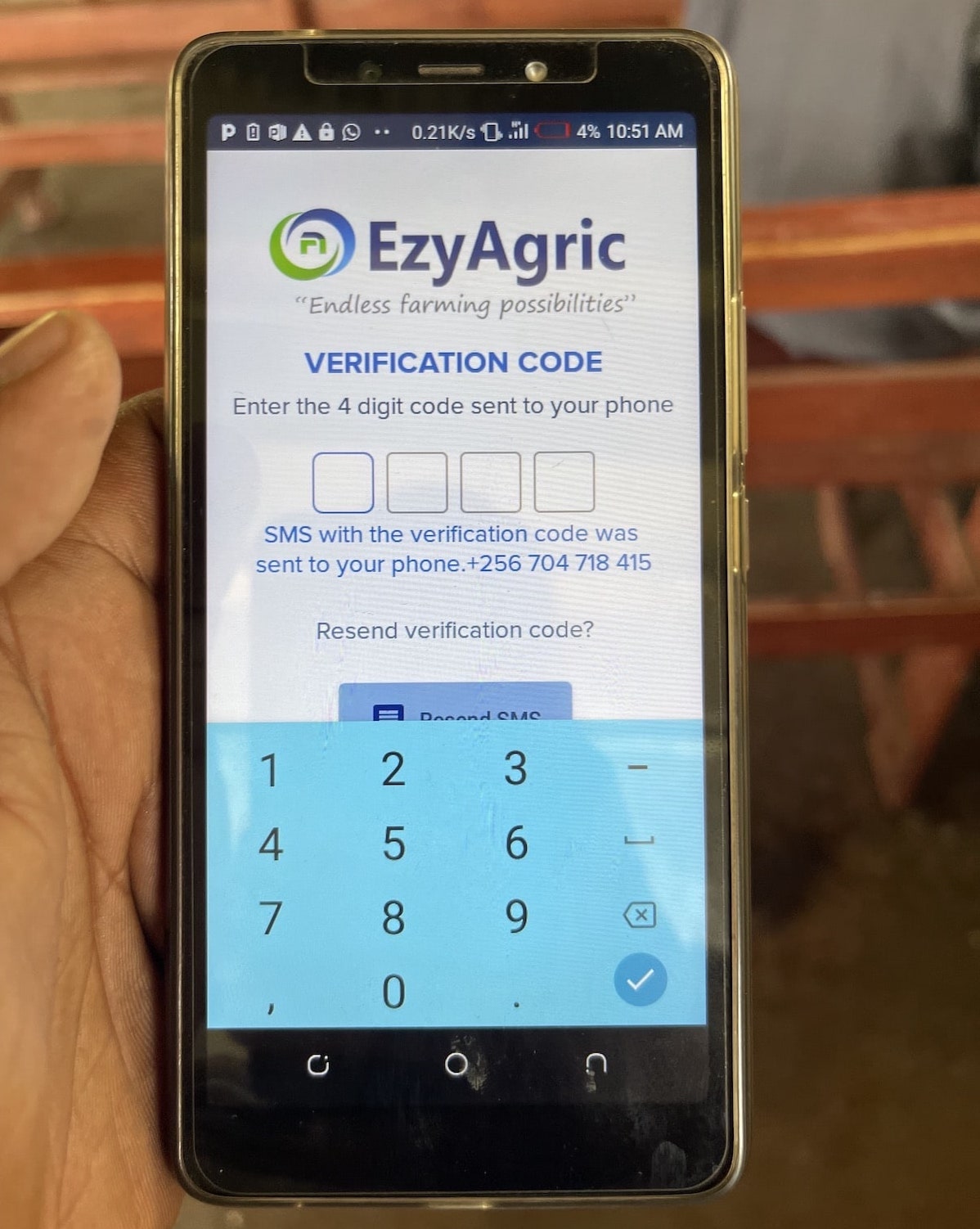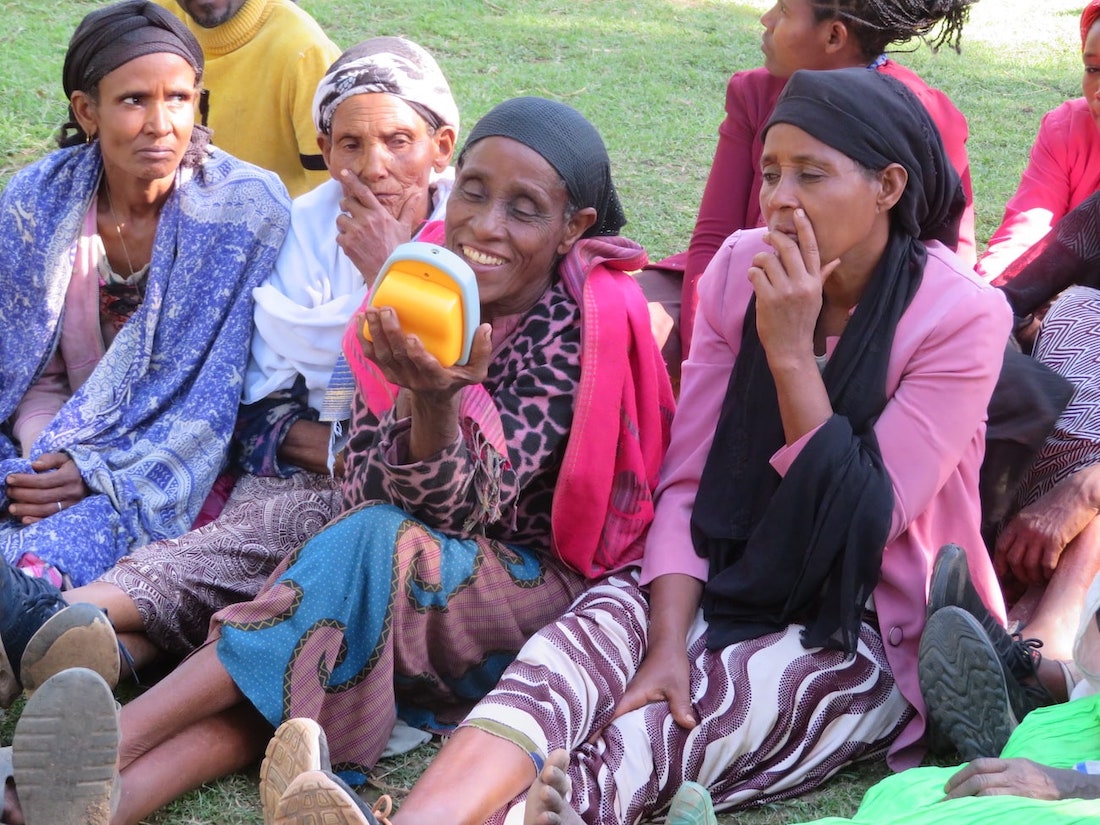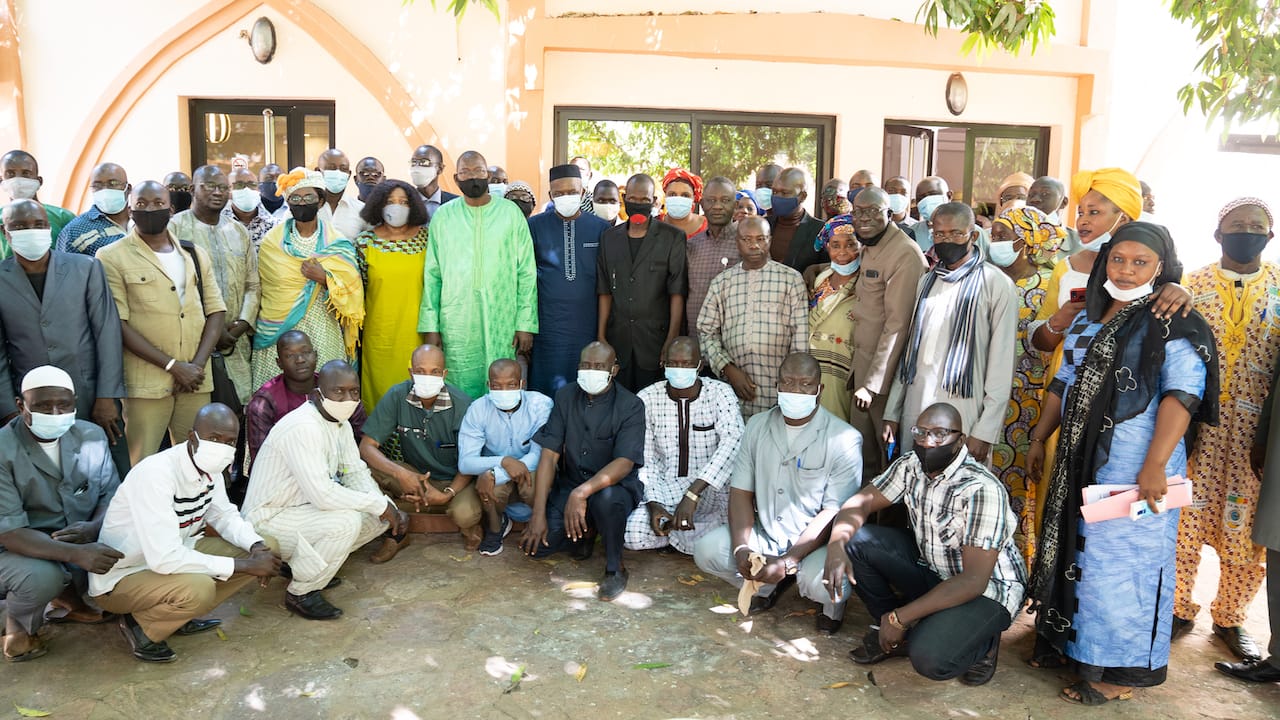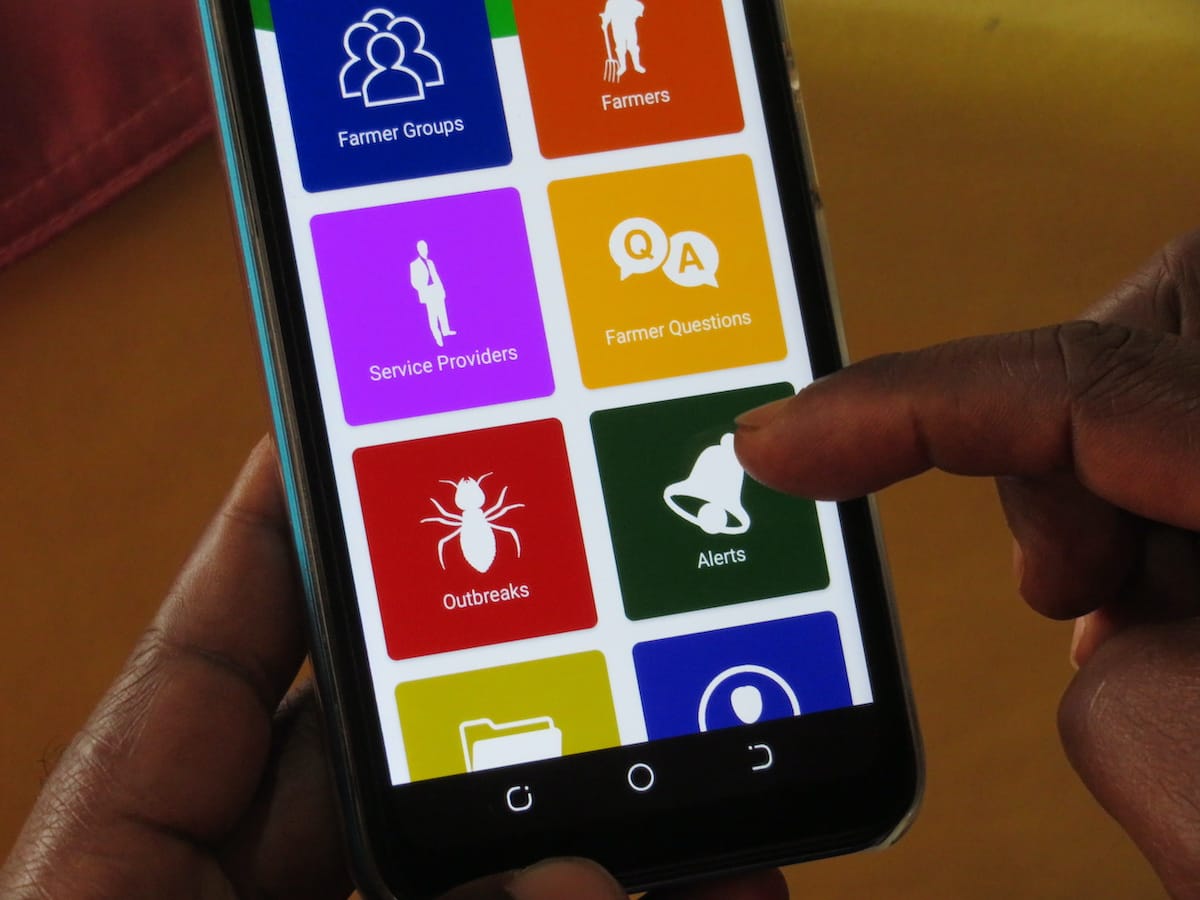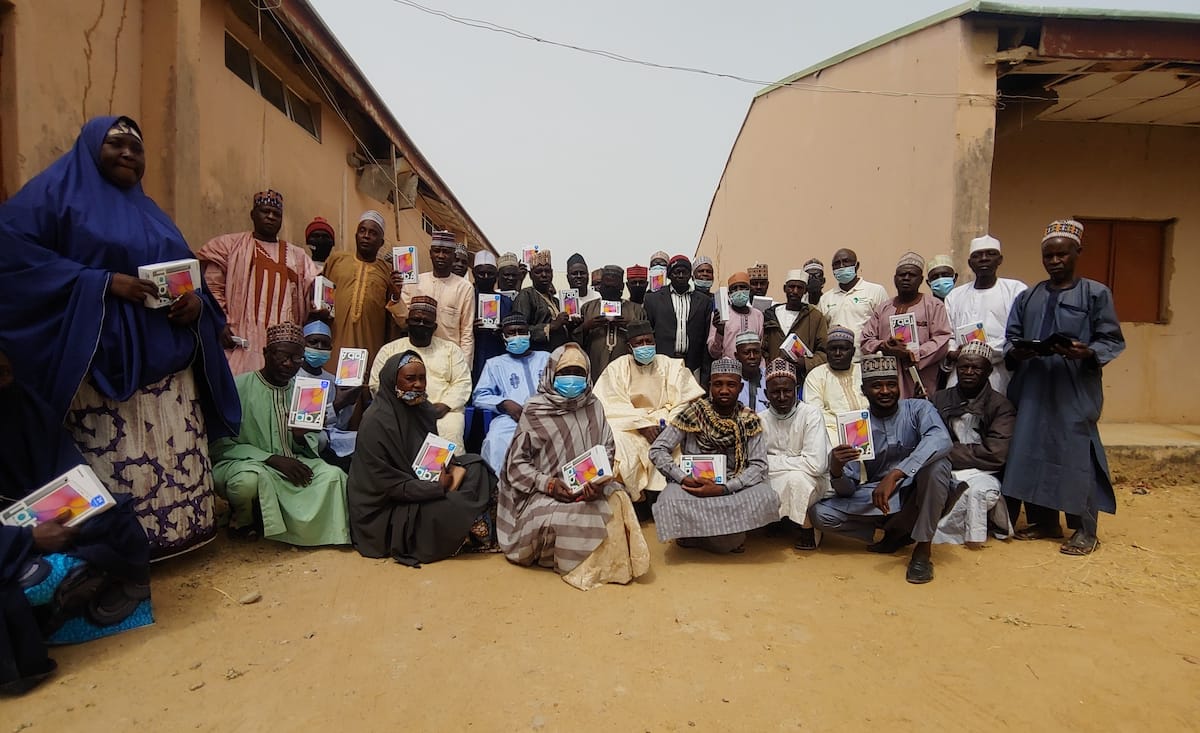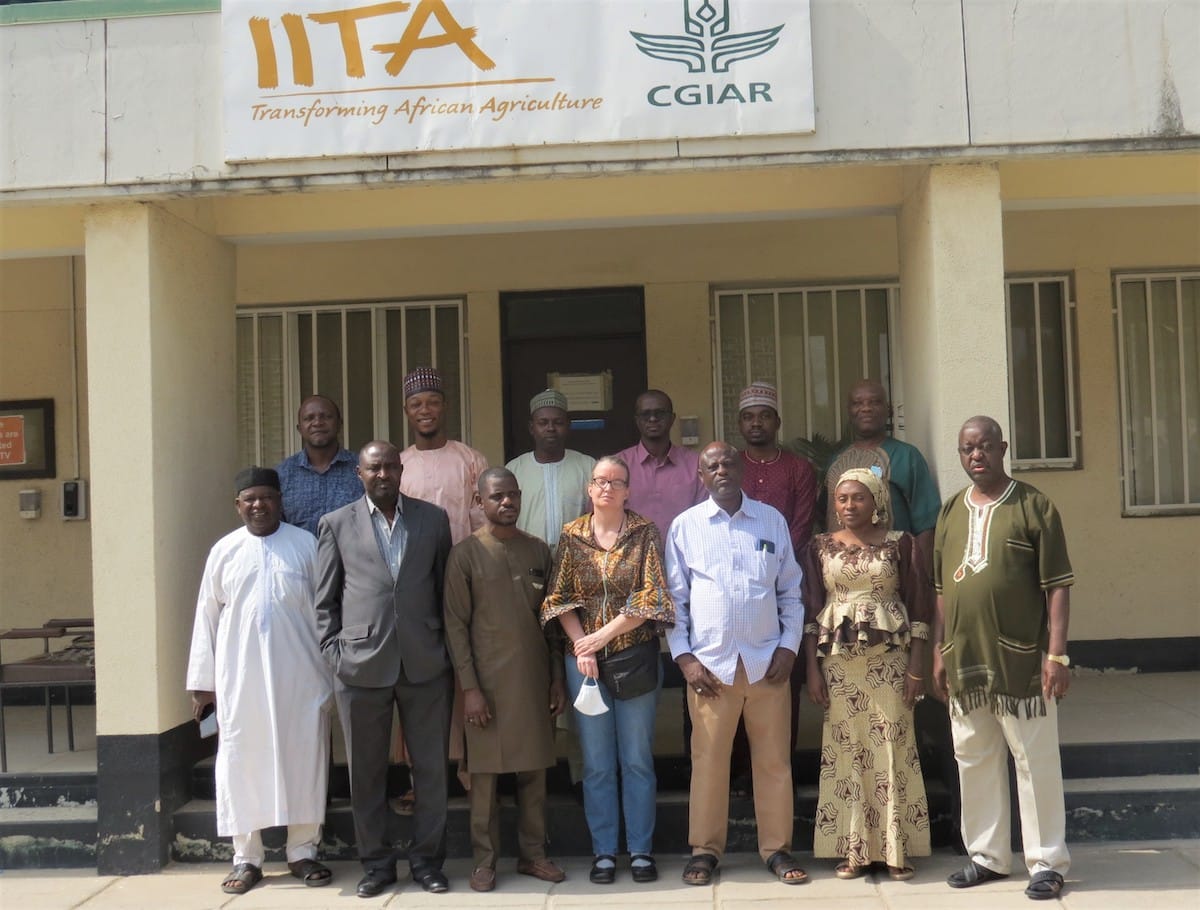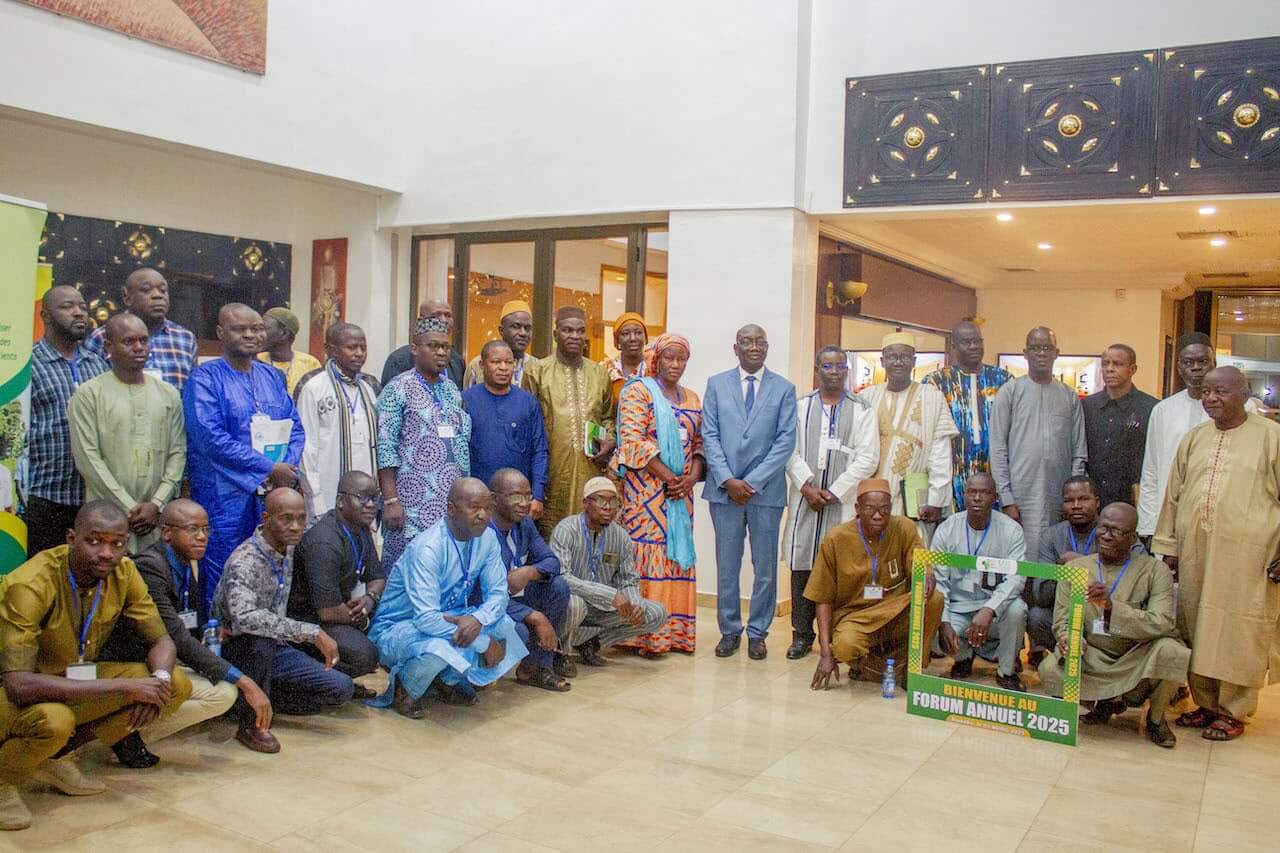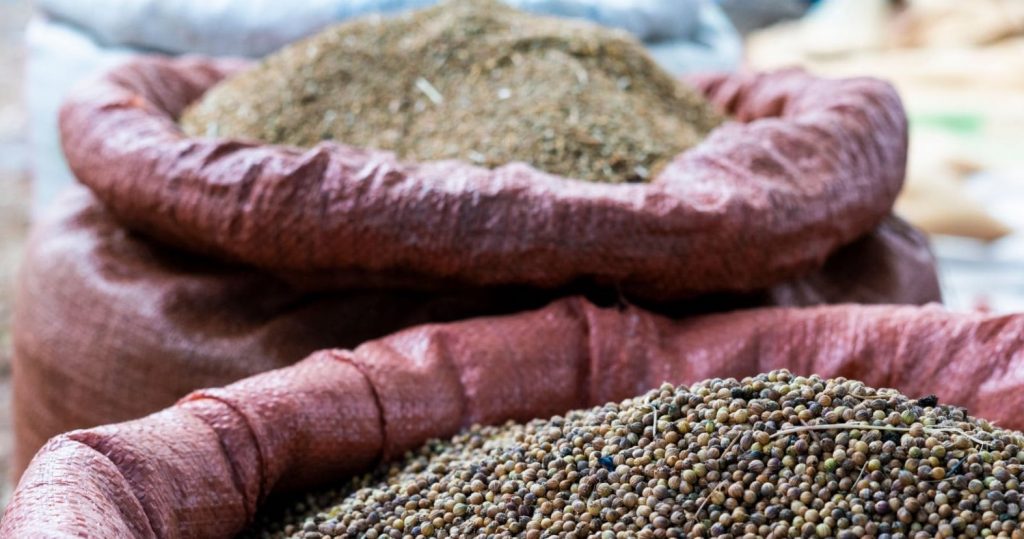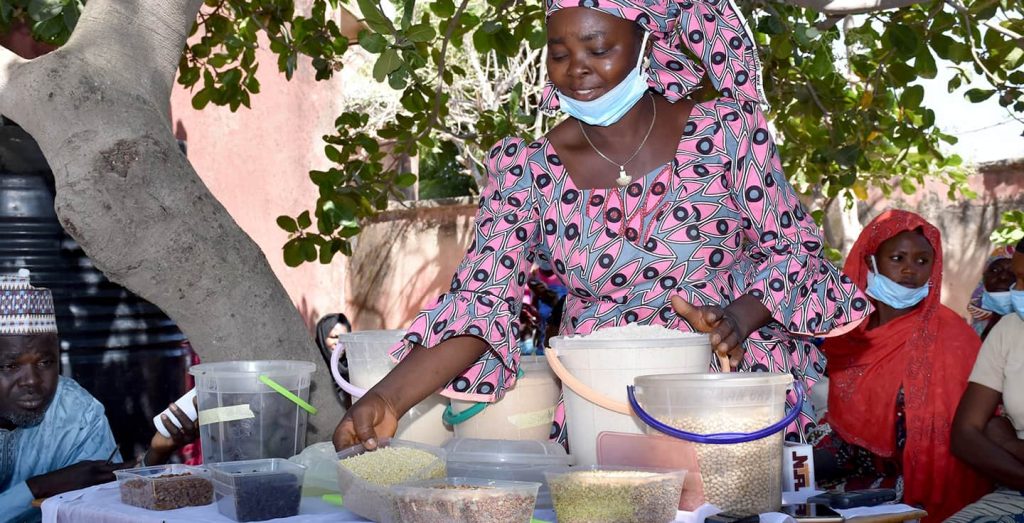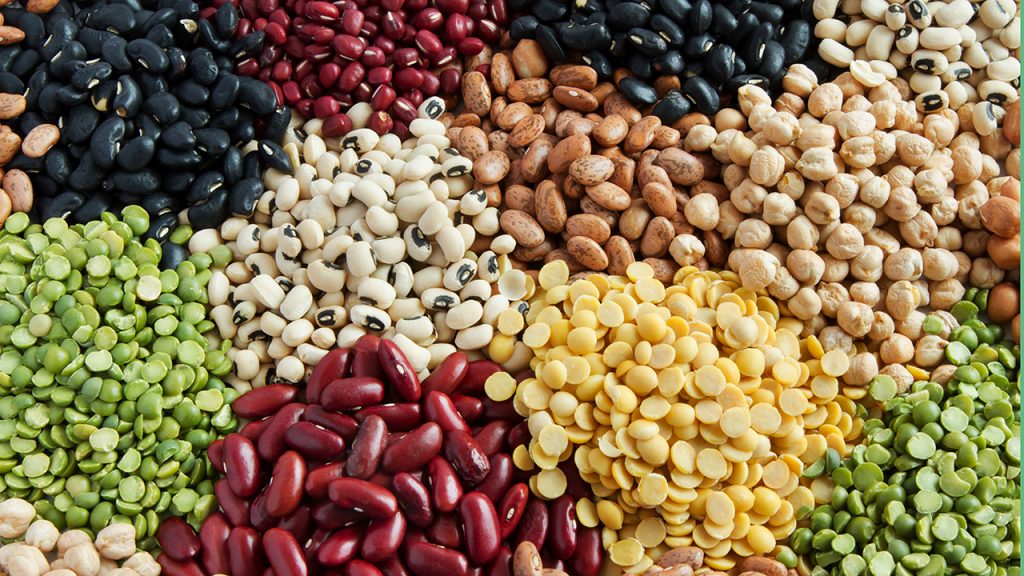Enhancing Agricultural Extension and Advisory Services through Digital Extension
September 2022
Message from the President
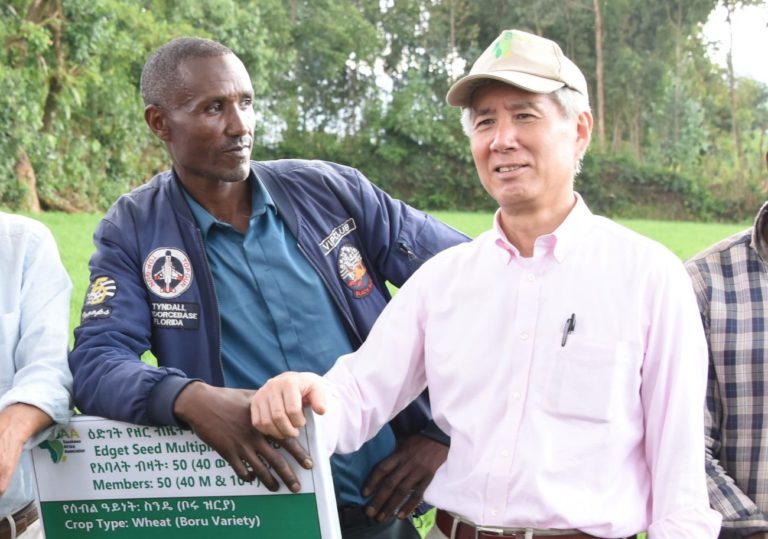
Message from the President
Since its establishment in 1986, SAA has focused on building the capacity of agricultural extension and advisory services. This has been achieved through field-level demonstrations of good agronomic practices and technologies in rural communities, and the training of agricultural extension agents. We believe that extension is a key component of smallholder farmer capacity-building, as it plays a big role in enhancing their resilience to cope with the various risks and challenges they face, at different stages of the agricultural value chain.
Unfortunately, farmers’ access to extension and advisory services in Africa is still constrained by multifaceted factors, including a shortage of extension workers and limited access due to the remoteness of many villages in the continent. To bridge the gap, SAA designed and is now promoting an e-extension service that proved particularly useful during the height of the COVID-19 pandemic, when mobility restrictions halted the access to information through traditional avenues like visits by extension workers.
SAA’s e-extension solution was developed in collaboration with private ICT companies and other stakeholders, leading to the introduction of various applications that were developed with the local context and farming systems in mind. The apps provide appropriate extension, market and financial services, and support access to inputs. In Ethiopia, for example, farmers get advice on pests and crop diseases via an interactive mobile app. In Uganda, an e-extension platform facilitates the purchase of seeds and fertilizer and provides market information on agricultural products. In Nigeria, SAA is partnering with the International Institute of Tropical Agriculture (IITA) and AfricaRice, to scale up a digital agricultural advisory service that provides site-specific integrated fertilizer recommendations alongside relevant agronomic advisories which has helped to expand extension outreach.
In relation, on August 26, 2022, we collaborated with IFPRI and AFAAS to host an official side event at the Tokyo International Conference on African Development (TICAD8), with the participation of the African Development Bank, IITA and JICA. The forum made it clear that multi-dimensional and digitally-enabled agricultural extension systems are key to the enhancement of smallholder farmer resilience. Further building their coping mechanism in face of current global crisis represented by recent fertilizer and fuel price hikes due to the War in Ukraine. Based on the lessons from this forum, we are committed to accelerating our effort for solid results in driving a more inclusive and dynamic agricultural transformation in Africa.
Sincerely,
Dr. Makoto Kitanaka,
President, Sasakawa Africa Association
Overview of Digital Extension: Nigeria
Overview of Digital Extension: Nigeria
Digital technologies for accelerated extension reach in Nigeria
SAA is expanding its reach through AKILIMO, an agronomic advisory service for cassava and maize intercropping, to Nigeria’s Kogi, Benue, Cross River, Anambra, Ogun and Nasarawa States. The AKILIMO application has been merged with two related applications: Nutrient Expert (NE) for Maize, and RiceAdvice (RA) for Rice, into one product that is currently being validated for precision and applicability under the Excellence in Agronomy (EiA) project. The consolidated mobile application provides advice on site-specific recommendations that optimize productivity and profits; field-specific recommendations for fertilizer application, and nutrient recommendation for individual farmers’ fields. Meanwhile, SAA-Nigeria has increased its focus on promoting Good Agronomic Practices (GAP) via mobile applications, television, YouTube and radio program, reaching about 2.2 million farmers across the intervention states. The SAA’s M&E team has trained 105 (22 female) extension agents on e-data collection using the Kobo Toolbox and the Kobo Collect Android app in the Gombe, Jigawa, Kano and Nasarawa States. The Kobo Toolbox and Kobo Collect Android app are enhancing the efficiency and quality of data collection.
Overview of digital extension: Mali
Overview of digital extension: Mali
Promoting e-learning for extension education at the University of Ségou, Mali
The COVID-19 pandemic’s challenges in agriculture and the associated response measures, led SAA-Mali to embrace e-Extension and e-Learning for its extension delivery and capacity development interventions. For the e-Learning program at the University of Ségou, the SAA supported in the development of online learning and meeting platforms by providing the required equipment for establishing a video recording studio and computers. Dr Tidiane Diarisso, the head of the department of Agriculture; Dr Abdou Traoré, the Dean of the faculty of agriculture and animal health, and Dr Ousmane Konipo, the coordinator of the undergraduate degree program at the University all confirmed improvements in the institutional capacity to deliver distance learning programs. This is despite challenges associated with unstable internet connection and the time needed by tutors to prepare online learning content.
Overview of digital extension: Uganda
Overview of digital extension: Uganda
Digital platforms enhance access to extension services for Uganda’s farmers
In partnership with companies that provide digital agricultural solutions such as m-Omulimisa and Ezy-Agric, SAA-Uganda is working towards increasing its efficiency in extension services delivery using ICT solutions. SAA equips extension workers and community-based facilitators with the skills needed to address farmers’ needs in real-time via mobile phones. To increase the digital extension capacity, in June, SAA trained 70 (32 female) farmers from the Alito and Okwerodot sub-counties of the Kole district, and the Okwang and Alango sub-counties in Otuke district to be ‘ICT for agriculture ambassadors’ in their communities. The training covered registration onto the apps, input purchase, market information, weather updates, and offline SMS options to request advisory services for guided decision making, among others.
Overview of digital extension: Ethiopia
Overview of digital extension: Ethiopia
Digital agriculture extension for accelerating knowledge and technology transfer in Ethiopia
SAA-Ethiopia’s digital agricultural extension work began in 2010 with the establishment of 21 Woreda Extension and Resource Centers (WERCs) outfitted with computers, printers, dial-up/ADSL internet access, and a portal from which 660 experts gained improved access to agricultural information.
The digitalization work was accelerated in the wake of the COVID-19 pandemic, which restricted travel. SAA-Ethiopia responded by introducing a bidirectional Customer Relationship Management (CRM) platform (BITRIX24) that allows information to be exchanged remotely between SAA staff and extension agents (EAs), as well as providing online training and follow-up.
Meanwhile, a crop-based extension and advisory services application, Ma’ed, is currently under development in partnership with the iCog-labs. This mobile app will carry detailed information on good agronomic practices, pest management and market information, aimed at supporting the transfer of knowledge and information from EAs to farmers. Training manuals for major crops have also been embedded into the app, which has already been moved to Ethio- telecom’s SAA Virtual Private Server (VPS), and will be published on GooglePlay under SAA’s own account shortly.
Additionally, SAA-Ethiopia has introduced an electronic device known as the Talking Book (TB) in collaboration with the AMPLIO company, which is an audio product delivering practical agronomic information, and can function as a standalone radio powered by rechargeable batteries. The TB, which does not require internet, electricity, or smartphone data plans to deliver information, is designed to directly provide extension and advisory services to farmers with little literacy. It also allows experts to track community feedback and usage statistics, allowing them to identify opportunities for the expansion or modification of program content in near real-time. The program specification document has been completed, the audio materials uploaded, and the piloting process started. A total of 132 audio materials have been created, and 44 EAs and 776 farmers have been trained on TB usage. So far, 439 (144 female) farmers have been reached; 234 (74 female) in Angacha district listened to Integrated Pest Management (IPM) messages, such as weed/insect pest/disease control and management, and 225 (70 female) in Ana Sora district listened to programming on planting and fertilizer application as well as weed control and management. The TB is expected to reach at least 842 people directly and 6,577 indirectly through 16 regenerative, nutrition-sensitive and market-oriented agricultural practice messages.
Finally, SAA-Ethiopia also established e-learning centers at the Bahir Dar and Jigjiga universities as part of their mid-career program. SAA outfitted them with computers, photo and video cameras, internet access, and audio-visual editing trainings. A web-based platform for the e-Learning pilot project was also developed.
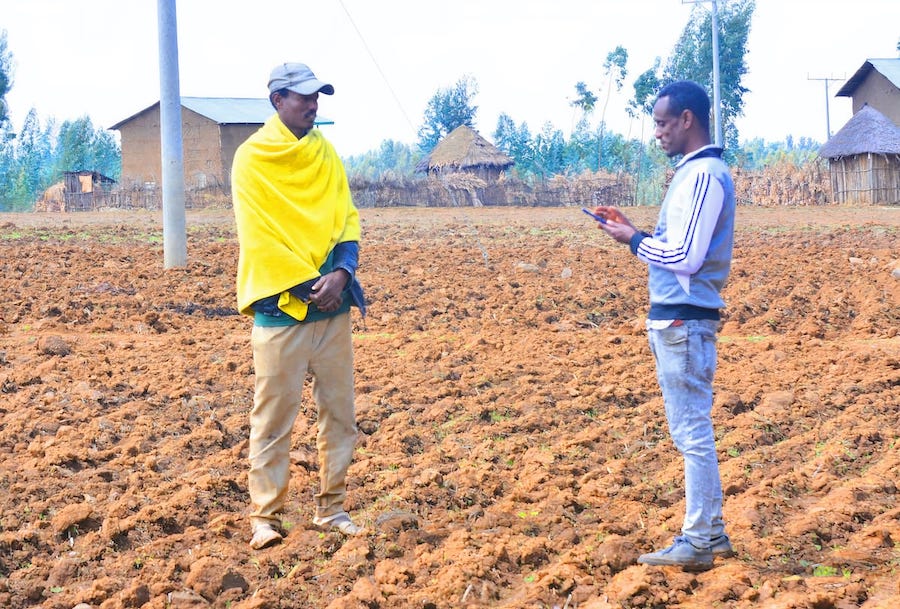
Voices from the field
Voices from the field
Providing better agricultural advice through e-Extension
Following the COVID-19 pandemic, which restricted peoples’ movements and assembly, SAA-Ethiopia moved with speed to intensify its e-Extension programs. Since 2010, SAA has been working to digitalize agricultural extension systems, but the COVID situation necessitated an acceleration in pace to popularize the use of digital tools in providing timely advice to farmers on good agricultural practices (GAP) including line planting, appropriate fertilizer application, mulching, crop rotation and minimum tillage. Getachew Belay, a Development Agent (DA) at the Taguba Meskel Farmer Training Center (FTC) in the Meket district of the Amhara region, says the new digital tools have enhanced access to agricultural information by both extension agents and farmers. A frontline extension agent, supporting 302 smallholder farmers, Belay says the voice calls and text messaging tools that they previously worked with were limited in terms of information dissemination capacity. He adds that the SAA promoted technologies have “greatly improved my access to information on GAPs regardless of internet connection, and enabled me to provide advisory services in a more timely and cost-effective manner.”
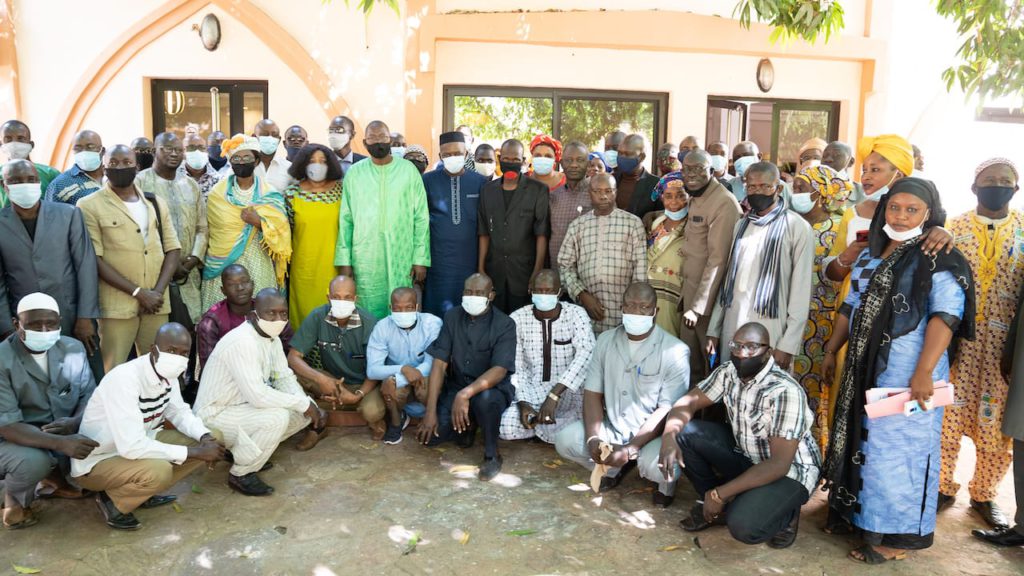
Voices form the field
Voices form the field
Using ICT to enhance Mali’s seed sector efficiency
In the last three years, SAA has been keenly working on transforming Mali’s seed sector through the promotion of digital technologies. In this regard, SAA has equipped various stakeholders with the necessary tools and skill to support seed quality control and certification processes all the way from production fields to the laboratory. At the labs, SAA-Mali has deployed technologies for analyzing seed-germination rate, physical purity, seed health, varietal purity and humidity. At the enforcement level, the program has equipped 52 government seed inspectors from 15 agricultural regions with the mobile gadgets, software and training needed for field mapping, and the detection, analysis and treatment of plant pathogens. Bamako’s Regional Directorate of Agriculture says the e-platforms have proven invaluable enabling information exchange among different actors along the value chain, including extension agents, farmers and agro-dealers. Now equipped with modern gadgets, the seed inspectors have, for example, gone ahead to create a WhatsApp group through which they share experiences and ideas. Producers have also increased their seed sales and purchased new equipment through the digital platforms. Overall, SAA has played a great role in equipping government seed inspectors and extension agents with the required ICT tools and training to enhance the quality of their work.
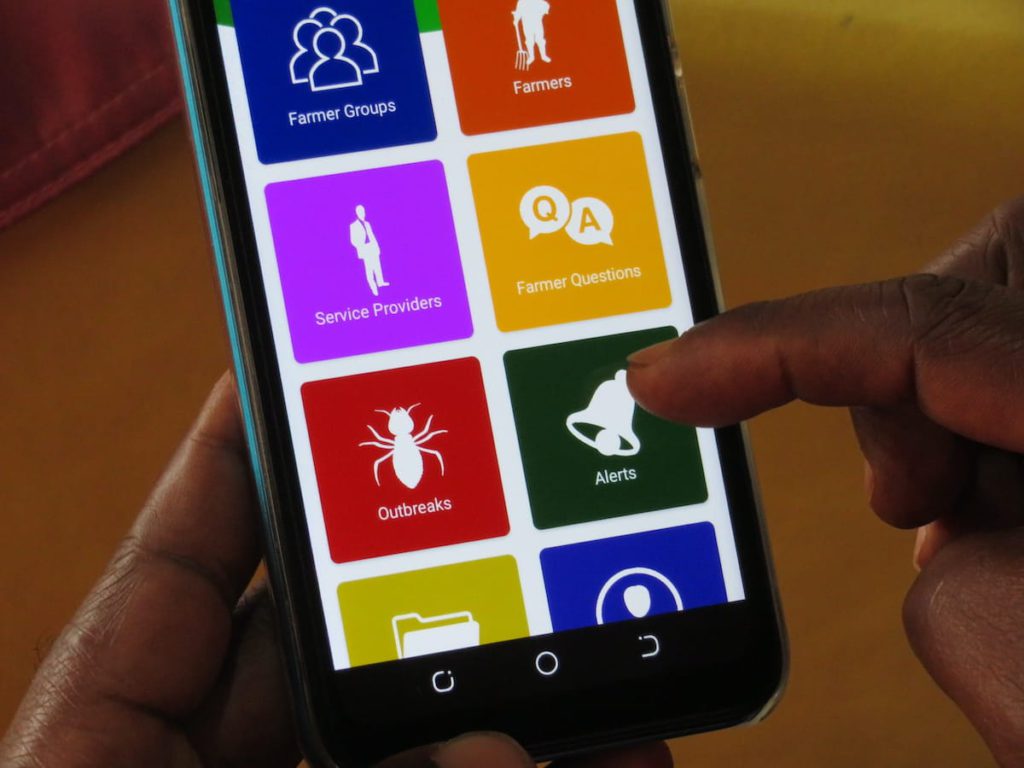
Voice from the field
Voice from the field
Digital technology helps increase farmers’ access to extension services
Part of the Sasakawa Africa Association (SAA)’s role in Uganda is to support the government’s efforts toward efficient agricultural extension delivery. This has been achieved through the use of e-Extension technologies that support farmers via applications like m-Omulimisa, and Ezy Agric. M-Omulimisa enables farmers to attach images of their field status and request for advice from extension officers and receive real-time responses from extension officers. Through the platform, farmers can also report and receive alerts on pests and disease outbreaks, access service providers, and communicate with fellow farmers. The EzyAgric app, on the other hand, enables farmers to map their land for better decision-making, sell and buy produce, record transactions, interact with village agents, get climate updates and receive farming tips. Betson Mujuuni (38), an SAA Community-Based Facilitator (CBF) from the Mbaare region of the Isingiro district, says: “Sasakawa taught me how to use the platforms and now, I teach others. I train farmers to use phone-based applications to access inputs, market information, among others; I oversee 60 (38 female) farmers in four groups.” Through his training in e-Extension Mujuni was able to support numerous farmers in navigating the production challenges of the 2020 and 2021 COVID period, an engagement that saw him get appointed the chairman of his parish. Countrywide, the SAA’s e-Extension service is proved to be instrumental in reducing Uganda’s extension worker to farmer ratio, which currently sits at 1:1,800 the recommendation of 1:500.
ACTIVITIES
Activities
Extension agents trained on the Pro-manager app
A total of 122 (19 female) extension agents in 20 local government areas of the Kano State were trained on using the Pro-manager app to support farmers. The Pro-manager app is meant to bolster data collection and management, in addition to monitoring field activities. Among the data it captures are yield and sales related information. The trainees were provided with mobile phones and tablets to promote targeted, actionable and customized information-sharing to farmers, whose profiles were captured along with geo-referenced data through the app.
Activities
Extension agents trained on the Pro-manager app
A total of 122 (19 female) extension agents in 20 local government areas of the Kano State were trained on using the Pro-manager app to support farmers. The Pro-manager app is meant to bolster data collection and management, in addition to monitoring field activities. Among the data it captures are yield and sales related information. The trainees were provided with mobile phones and tablets to promote targeted, actionable and customized information-sharing to farmers, whose profiles were captured along with geo-referenced data through the app.
Activities
Training on Fertilizer Investment Prioritization (FIP) Tool
Between May and June 2022, SAA trained extension agents and farmers in the Benue, Kaduna and Kano States in Nigeria on the Fertilizer Investment Prioritization (FIP) tool, which provides site-specific fertilizer advisory services (right rate, source, time and place of application), and investment prioritization (based on cost benefit analysis at various yield targets) across three crops – rice, maize and cassava. A total of nine extension agents, each working with 20 farmers, for a total of 180 (44 female) farmers were engaged in the validation of the system across three states. Prior to the training, farmers’ information and needs were collected using the Open Data Kit, and all necessary inputs procured and distributed. For the extension agents, the training covered: the selection criteria for beneficiary farmers and households; site selection criteria; field area measurement, and the field establishment protocol for each crop. The FIP tool was developed based on the principles and algorithms of SAA’s fertilizer recommendation tools (i.e., Nutrient Expert for maize, Rice Advice for rice, and AKILIMO for cassava). Work is in progress to add other agronomic and productivity variables to the FIP tool, including site-specific and condition-specific variety selection, planting windows, and crop establishment techniques (especially for rice and cassava), among others.
Activities
Training on Fertilizer Investment Prioritization (FIP) Tool
Between May and June 2022, SAA trained extension agents and farmers in the Benue, Kaduna and Kano States in Nigeria on the Fertilizer Investment Prioritization (FIP) tool, which provides site-specific fertilizer advisory services (right rate, source, time and place of application), and investment prioritization (based on cost benefit analysis at various yield targets) across three crops – rice, maize and cassava. A total of nine extension agents, each working with 20 farmers, for a total of 180 (44 female) farmers were engaged in the validation of the system across three states. Prior to the training, farmers’ information and needs were collected using the Open Data Kit, and all necessary inputs procured and distributed. For the extension agents, the training covered: the selection criteria for beneficiary farmers and households; site selection criteria; field area measurement, and the field establishment protocol for each crop. The FIP tool was developed based on the principles and algorithms of SAA’s fertilizer recommendation tools (i.e., Nutrient Expert for maize, Rice Advice for rice, and AKILIMO for cassava). Work is in progress to add other agronomic and productivity variables to the FIP tool, including site-specific and condition-specific variety selection, planting windows, and crop establishment techniques (especially for rice and cassava), among others.
EVENTS
NEWS AND ACTIVITIES FROM OTHER COUNTRIES
SAA Annual Stakeholders Workshop 2025 Held in Mali
On April 3, 2025, the Sasakawa Africa Association (SAA) held its Annual Forum in Bamako, Mali, under the theme: “Professionalizing Producer Organizations to Improve Their Access to Finance, Markets, and Resilience.” The event brought together government officials, researchers, development partners, and private sector actors to discuss challenges and opportunities in the agricultural sector.

The Forum highlighted the importance of strengthening producer organizations as key to improving farmers’ access to finance, markets, and climate resilience. SAA-Mali’s Country Director emphasized the Forum’s role in shaping the next strategic phase (2026–2031). Former SAA President Dr. Makoto Kitanaka underscored the need to transform agriculture into an economic sector, with Postharvest and Trading Centers (PHTC) playing a vital role in training and market access.
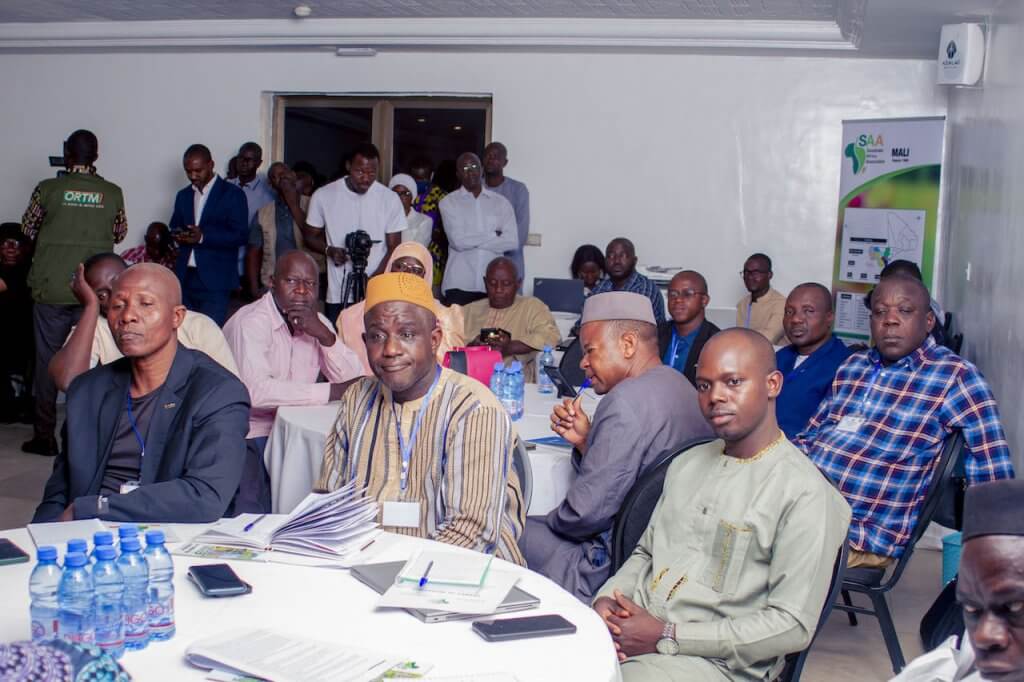
The event reaffirmed SAA’s commitment to sustainable practices such as crop rotation and integrated soil management, while laying the groundwork for stronger collaboration among agricultural stakeholders in Mali and across Africa. Since 2021, SAA has been implementing a strategy focused on Regenerative Agriculture (RA), Nutrition-Sensitive Agriculture (NSA), and Market-Oriented Agriculture (MOA), with a strong emphasis on youth and women inclusion, as well as digital extension services.
NEWS AND ACTIVITIES FROM OTHER COUNTRIES
SAA Annual Stakeholders Workshop 2025 Held in Mali
On April 3, 2025, the Sasakawa Africa Association (SAA) held its Annual Forum in Bamako, Mali, under the theme: “Professionalizing Producer Organizations to Improve Their Access to Finance, Markets, and Resilience.” The event brought together government officials, researchers, development partners, and private sector actors to discuss challenges and opportunities in the agricultural sector.

The Forum highlighted the importance of strengthening producer organizations as key to improving farmers’ access to finance, markets, and climate resilience. SAA-Mali’s Country Director emphasized the Forum’s role in shaping the next strategic phase (2026–2031). Former SAA President Dr. Makoto Kitanaka underscored the need to transform agriculture into an economic sector, with Postharvest and Trading Centers (PHTC) playing a vital role in training and market access.

The event reaffirmed SAA’s commitment to sustainable practices such as crop rotation and integrated soil management, while laying the groundwork for stronger collaboration among agricultural stakeholders in Mali and across Africa. Since 2021, SAA has been implementing a strategy focused on Regenerative Agriculture (RA), Nutrition-Sensitive Agriculture (NSA), and Market-Oriented Agriculture (MOA), with a strong emphasis on youth and women inclusion, as well as digital extension services.
